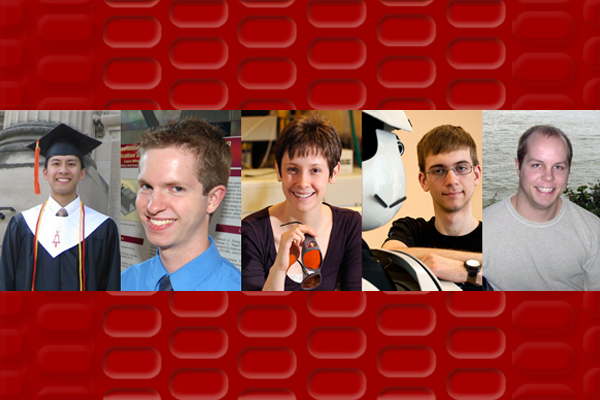Five Iowa State College of Engineering alumni are joining a prestigious group of past National Science Foundation (NSF) Graduate Research Fellowship Program (GRFP) recipients.
Seth Berbano, BSMatE’11; Elliot Combs, BSChE’11; Chloe Dedic, BSME’12; Connor Schenck, BSCS’11; and Barret Schloerke, BSCpE’10, will join a list that includes Nobel laureate and U.S. Secretary of Energy Steven Chu, Google founder Sergey Brin, and Freakonomics author Steven Levitt.
Each will receive a three-year annual stipend of $30,000 and a $10,500 cost of education allowance for tuition and fees as NSF GRFP Fellows. They will also be given opportunities for international research and professional development, and the freedom to conduct their own research at any accredited U.S. graduate program they choose.
The GRFP promotes science and engineering in the United States by recognizing and supporting outstanding graduate students in NSF-supported science, technology, engineering, and mathematics disciplines who are pursuing research-based master’s and doctoral degrees. The program has a long history of selecting recipients who go on to achieve high levels of success in their future academic and professional careers.
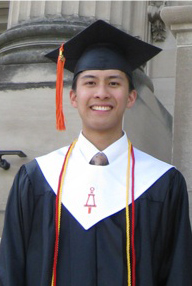
Berbano just finished the first year of his doctoral programs in materials science and engineering at Penn State. The fellowship will allow him to continue his research in using safer lithium solid electrolytes for energy storage.
Berbano was also offered a National Defense Science and Engineering Graduate Fellowship but turned it down due to newly established rules that require students to accept only one fellowship. “I would like to thank the excellent faculty at Iowa State, especially Dr. Steve Martin, for their dedication to teaching and providing valuable experiences,” Berbano said.
After completing his PhD, Berbano would like to develop his skills in industry before returning to academia to research and teach.
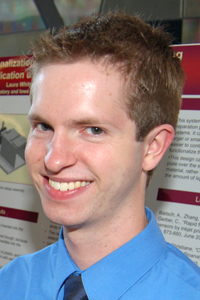
Combs is currently working at Iowa State’s Biorenewables Research Laboratory with Mike and Jean Steffenson Professor Brent Shanks. He’s part of a research group developing catalysts and reactions systems to produce valuable chemicals from biorenewable feeds, instead of traditional petroleum-based sources. This fall, he will begin working towards his doctorate degree in chemical engineering at the University of Minnesota, where he will be conducting research in renewable fuels and energy in the realm of chemical catalysis or photovoltaics.
“The fellowship provides me great freedom in choosing an advisor and a project since I have my own funding from NSF,” Combs said. “It will also give me the opportunity to publish more papers in peer-reviewed journals, which will be a tremendous asset as I plan on pursuing a faculty position after receiving my PhD.”
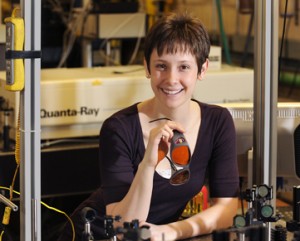
Dedic, who has been concurrently working on her undergraduate and master’s degree in mechanical engineering at Iowa State, works in ME associate professor Terry Meyer’s research laboratory. She is using laser diagnostics to study combustion processes in order to develop clean energy technologies, and hopes to use her fellowship to continue her work.
“I was extremely excited when I discovered I had received the award, and the first thing I did was call my parents to tell them the news,” Dedic said. “Then, I went back to work! To me, receiving an NSF fellowship is a call to action. A committee of top scientists and engineers believe I have the potential to contribute to important research, and I want to work to prove them right.”
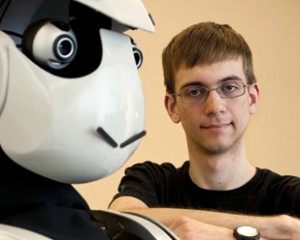
Schenck is currently working on his master’s in computer science with a co-major in human-computer interaction at Iowa State and conducting research in ECpE assistant professor Alexander Stoytchev’s Developmental Robotics Laboratory. He will use his fellowship to develop techniques for a robot to learn about structure in groups of objects and how to leverage it, such as the natural clustering that a set of silverware has, i.e. spoons, forks, knives.
“I was excited when I found out I was selected, because I was becoming nervous about getting my research funded for next year. This award put my mind at ease,” he said. After he finishes his master’s next summer, Schenck plans to pursue a doctorate in the area of artificial intelligence and robotics.
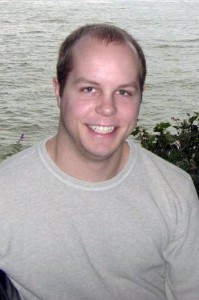
Schloerke works as a software engineer at Metamarkets, a startup company in San Francisco that provides data science-as-a-service. He was admitted directly into the statistics PhD program at Rice University in Houston, where he will start this fall, researching methods to display very large data that contains millions to billions of rows of figures.
“Currently, graphics that come from distributed data are very hard to produce, but when you consider all the data people and companies are collecting, large data graphics have an immediate need,” Schloerke explained.
